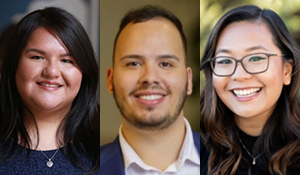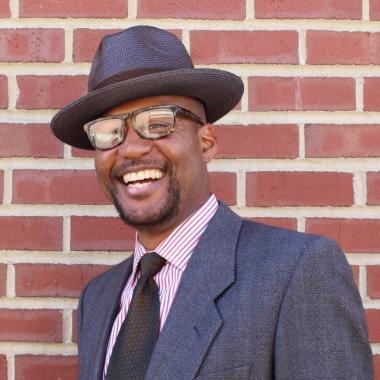How Youth-Participatory Grantmaking is Transforming Philanthropy
As a youth organizer who has dedicated most of my life to advocating for change, I know that there are few as intimately acquainted with the needs of our community as my fellow youth organizers and myself.
To truly strengthen our democracy for the long-term, funders need to hear directly from young people and youth organizing staff and follow their lead to deeply invest in the ecosystem that builds political home and collective agency for us.
Although relatively new, the field of youth-participatory grantmaking has been groundbreaking in practice. The Youth Power Fund (YPF), which recently announced its third phase of $1.12 million in grants to youth organizing groups, emerged from YO! Cali’s Network assessment that unearthed the need for connection among youth organizing groups, capacity building opportunities, and increased resourcing of the youth organizing field.
YPF uniquely empowers me and other young leaders impacted by social and economic challenges to directly influence the allocation of resources. It's about ensuring that young people are not just symbolic figures but are given real decision-making power. It has been an incredibly empowering experience and opportunity to channel funds directly into our communities while simultaneously restructuring the relationship between philanthropy and grassroots organizing.
My journey began in 2020 with YO! Cali and the Youth Power Fund. Since then, I have become deeply entrenched in this niche field of youth-participatory grantmaking. Over time, I have held various roles in the philanthropy sector. I have served on the decision-making committee for both cycles of the YPF grantmaking process, partnered with the Walter & Elise Haas Foundation as a BAY Fellow to distribute up to $1,000,000 via their Possibility Grant, spoke at numerous philanthropic gatherings, and currently, I am mentoring more young individuals to navigate and contribute to philanthropy.
I acknowledge that there are right and wrong ways to engage young people in philanthropy. For these spaces to genuinely be transformative for funders and youth, it is imperative to move beyond mere inclusion of young people towards recognizing young people as key leaders and decision-makers. The Youth Power Fund model does this – it conducts design sessions every two years to engage young people and youth organizing groups on resourcing and capacity building priorities, and it leverages trust-based relationships in a way that allows young people and funders to share power through our Field Leadership Advisory Council.
The Field Leadership Advisory Council is a group of eight young people aged 18 – 24 years old who are youth organizers with YPF organizations. This leadership body is the liaison between the field and the funder strategy. YPF champions leadership pathways for the Field Leaders by pairing us with funders for mentoring and opportunities to champion trust-based philanthropy at a national, statewide, and regional level. It’s crucial to offer mentorship, education, and resources to develop youth leadership skills and highlight possibilities of career in the philanthropy.
This type of grantmaking isn’t a simple shift. It involves creating environments that are not only accessible but also highly responsive to the ideas, concerns, and aspirations of young people. This involves giving us the authority to shape the core elements of the fund, the freedom to set our own priorities, and the ability to make impactful decisions about grant allocations.
Through YPF, I’ve built relationships with philanthropic leaders like Bella Lopez of the San Francisco Foundation that have inspired and motivated me to continue power building in this sector. As a funder, Bella joined the Youth Power Fund as the Multicultural Fellow in the Power Pathway at the San Francisco Foundation. All funders at YPF have different levels of experience with the youth organizing ecosystem, some coming into the funding world from youth organizer roles (like Bella); some from foundations centered around social justice, power-building, education; and some newer to the youth organizing landscape. Funders like Bella value how YPF allows them to step outside traditional roles and explore the opportunities of what is possible, to disrupt power dynamics, and to center young people. One of the reasons I keep coming back to YPF is the diversity of leadership and experiences at the table.
The role of youth in philanthropy goes beyond individual projects or funds; it promotes a more democratic and effective approach to addressing societal issues. By leveraging the unique perspectives, energy, and visions of young people, YPF deconstructs traditional grantmaking power dynamics and utilizes a participatory approach with young people that reimagines what grantmaking can be. Learning directly from young people and those involved in the work is crucial – it informs funders, youth organizing staff and young people what the vast needs of the ecosystem are and where we should be resourcing our grantmaking.
Through YPF, I’ve been able to sharpen my leadership and influence in philanthropy. As we continue to dismantle the barriers between funders and the communities they aim to support, we set the stage for a future where philanthropy genuinely embodies the principle of being by the people, for the people.
Interested in learning more or joining the Youth Power Fund? Get in touch! Email us at [email protected], or fill out this short contact form to stay informed about our work.










